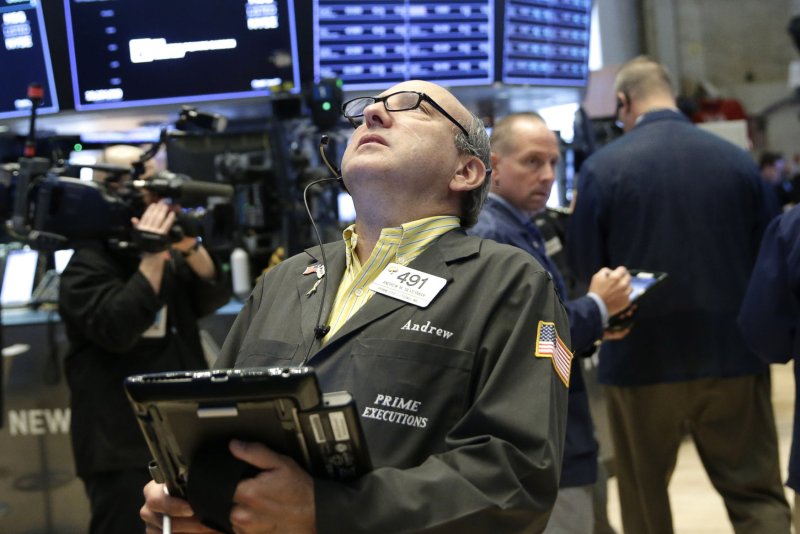As Canada rushes to join NAFTA negotiations, and India and the U.S. prepare to discuss Iranian oil imports, oil prices are down ahead of the Labor Day weekend. Photo by John Angelillo/UPI |
License Photo
Aug. 31 (UPI) -- As Canada rushes to join NAFTA negotiations, and India and the United States prepare to discuss Iranian oil imports, oil prices were down slightly heading into the Labor Day weekend in the United States.
Some turbulence in markets is expected Friday as Canada approaches its deadline to join the trade deal, already negotiated between the United States and Mexico, which is intended to serve as a successor to the North American Free Trade Agreement.
"Markets would really, really like a deal," James Pethokoukis of the American Enterprise Institute told CNBC. "They would quit trying to play scenarios about withdrawing and what that would mean. They want that certainty."
Canada's Federal Court of Appeal ruled against the government's approval of an expansion of the Trans Mountain Pipeline on Thursday. The plan, which could bring 590,000 barrels per day to market, was rejected, the court said, because the National Energy Board's environmental assessment of the project was flawed. The expansion is already behind schedule, and the latest delay could push the completion target date to 2021.
The court sent the case back to the government for more environmental reviews. The NEB said the ruling nullifies its certification of the expansion, adding that it is taking measures to safely shut down the project.
"We remain committed to building this project in consideration of communities and the environment, with meaningful consultation with indigenous peoples and for the benefit of Canadians," an NEB statement said.
The average retail price of regular gasoline in the United States prior to the Labor Day weekend is the highest this year since 2014.
The average U.S. price on Aug. 27, the Monday before the holiday, was $2.83 per gallon, the U.S. Energy Information Administration said on Friday. The price was $3.45 per gallon on the same day in 2014. The difference is an $18 per barrel increase in crude oil between then and today.
Crude Oil Futures were at was at $77.49 per barrel as of 11:30 EDT, down 0.36 percent. West Texas Intermediate, the U.S. benchmark, was at $69.97 per barrel at the same time, down 0.40 percent.
The market drop coincides with strong gasoline demand in the United States. U.S. Federal Highway Administration data indicate that the cumulative miles driven in the United States through the first half of 2018 increased by 5.2 billion miles, or 0.3 percent, from the same period in 2017. The EIA said Friday that the price of gasoline peaked in May and will likely remain flat through the fourth quarter of the year.
Talks in New Delhi next week between India and the United States will likely include discussion of India's plan to continue importing some Iranian crude oil after U.S. sanctions resume in November. India is one of Tehran's best oil customers, and its import goals will be a factor in determining the amount of decline in Iranian exports when the sanctions begin.
"We have been discussing regularly with India issues related to both Iran and [U.S. sanctions against Russia] and are looking, as with other partners, to identify ways to cooperate to support our policy goals with regard to both those issues," a senior State Department official said on Thursday.
The State Department has not said if India sought or obtained a waiver to the sanctions in exchange for a reduction in Iranian oil it buys.















